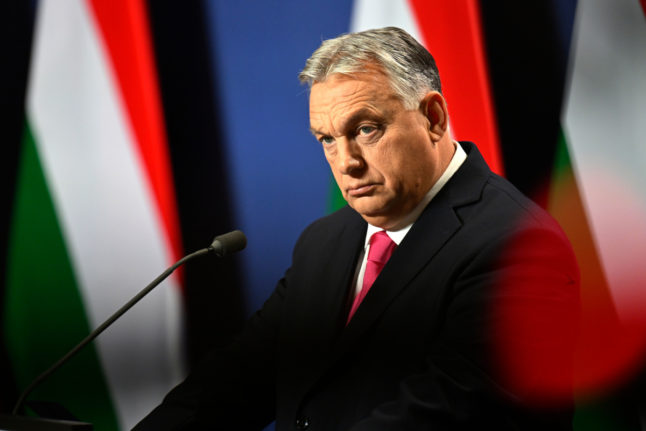“The completion of the ratification process of Sweden’s Nato membership in the Hungarian parliament will create a solid foundation to move ahead in our bilateral relationship,” Kristersson said in the letter, dated January 25th.
Kristersson added that he looked forward to discussing the issue in Budapest “at a time convenient for both of us.”
“We will also have an opportunity to meet at the important European Union Council in Brussels on February 1st.”
Turkey’s parliament on Tuesday ratified Sweden’s Nato membership after more than a year of delays.
EXPLAINED:
Turkish President Recep Tayyip Erdogan is expected to sign Sweden’s ratification document and conclude Ankara’s role in the protracted saga in the coming days, making Hungary the lone holdout to yet approve Sweden’s bid.
Nato membership applications require unanimous ratifications by all alliance members.
Orban on Tuesday sent a letter to Kristersson inviting him to Budapest to discuss the bid “at your earliest convenience”.
That came just days after Hungary criticised Sweden for not taking steps to strengthen bilateral relations.
Budapest has often denounced what it called Sweden’s “openly hostile attitude”, accusing Swedish representatives of being “repeatedly keen to bash Hungary” on rule-of-law issues.
Concerns raised by Russia’s invasion of Ukraine in February 2022 led Sweden and Finland to abandon their long-standing military non-alignment and apply for membership in the North Atlantic Treaty Organisation.
While Finland joined in April, Sweden’s application has been stalled by Turkey and Hungary.


 Please whitelist us to continue reading.
Please whitelist us to continue reading.
Member comments